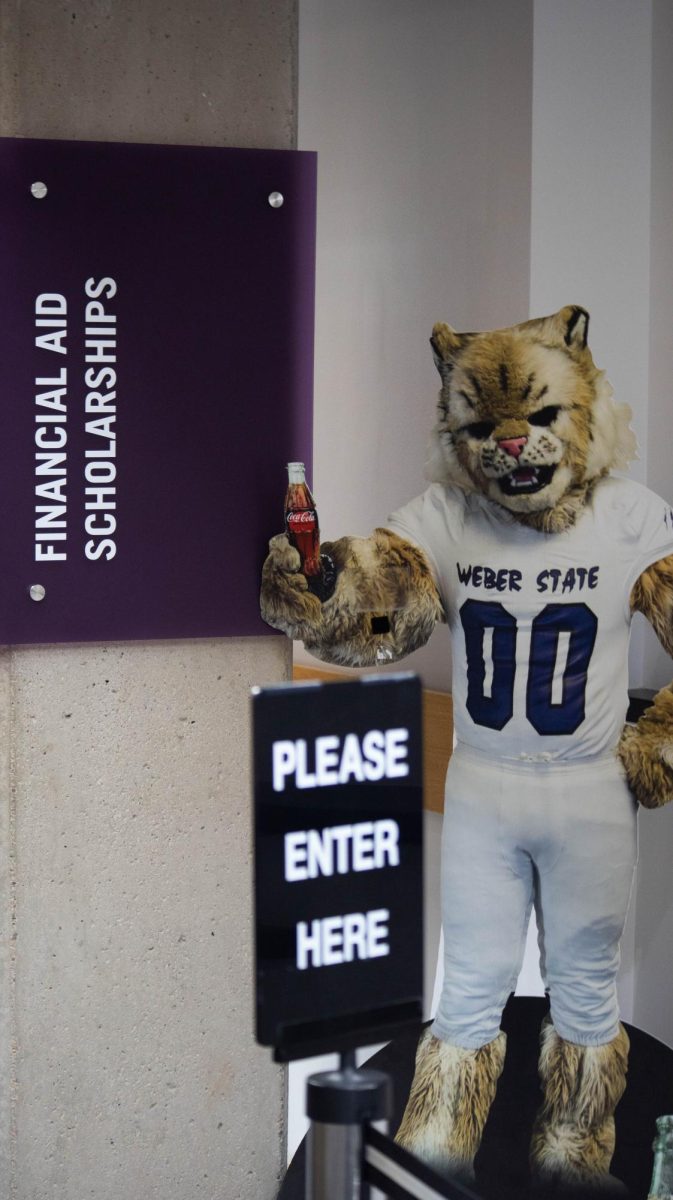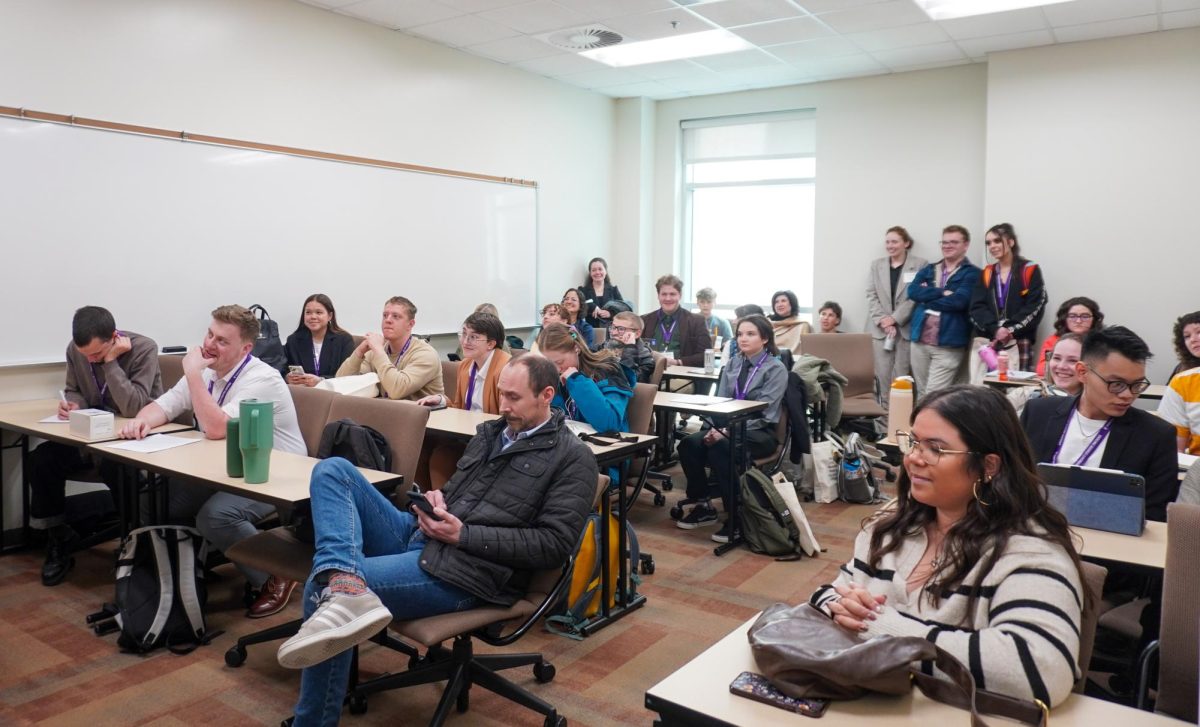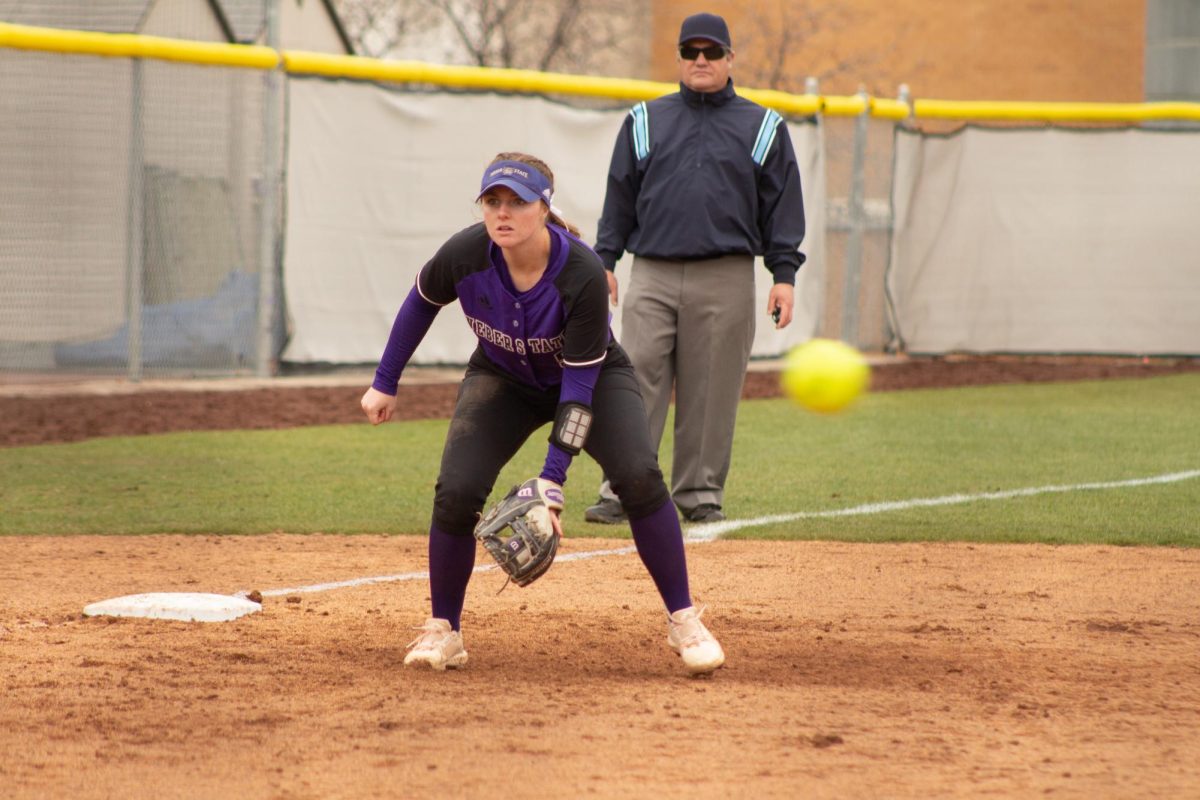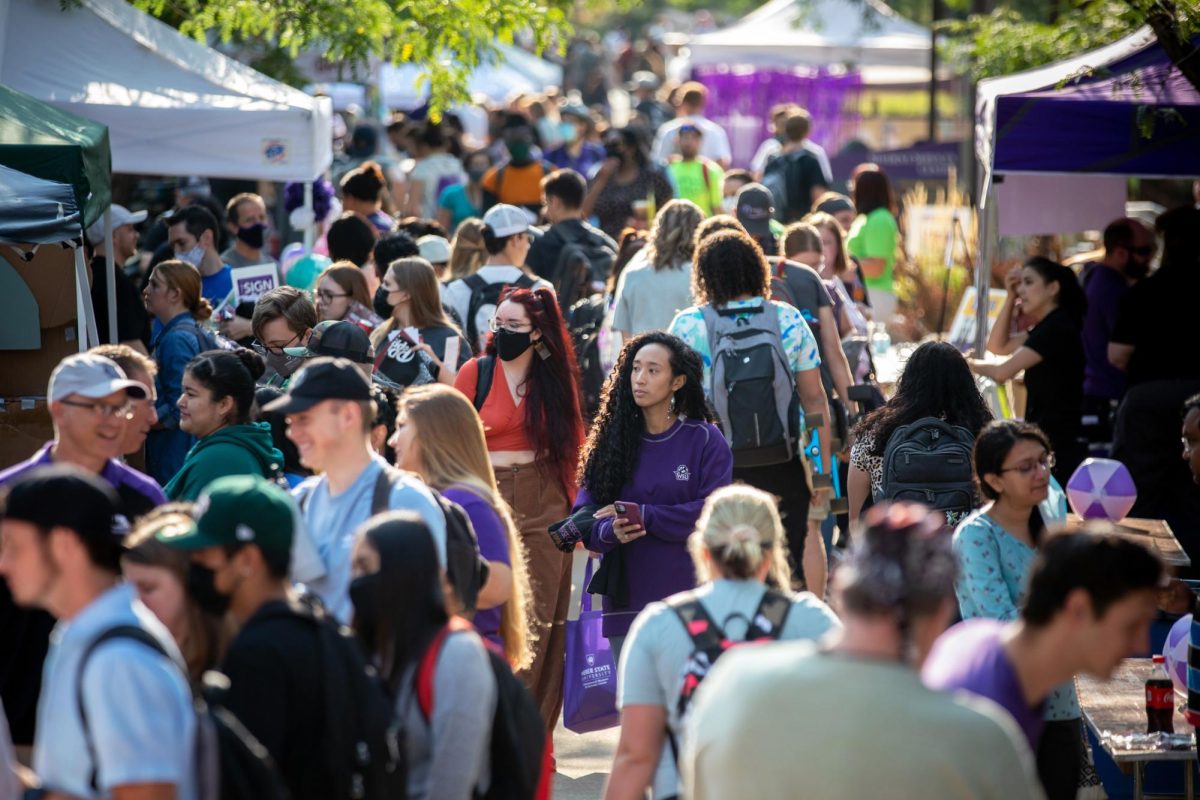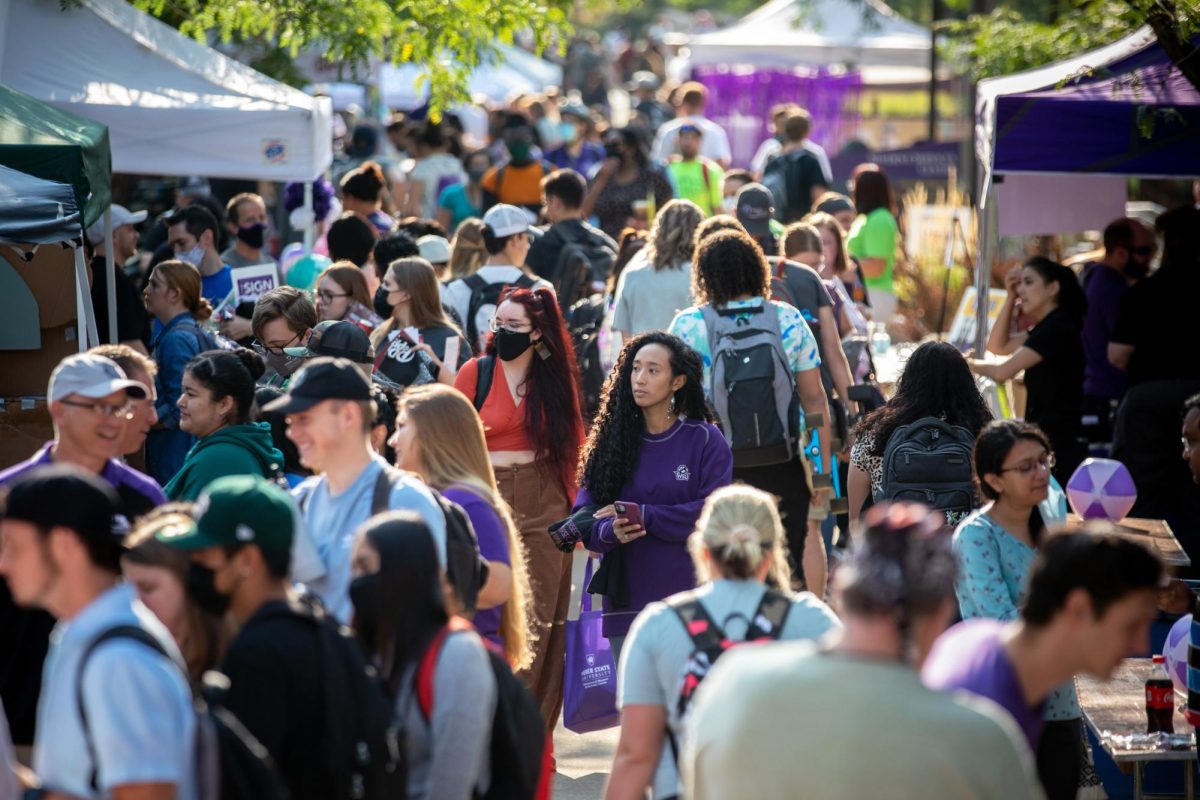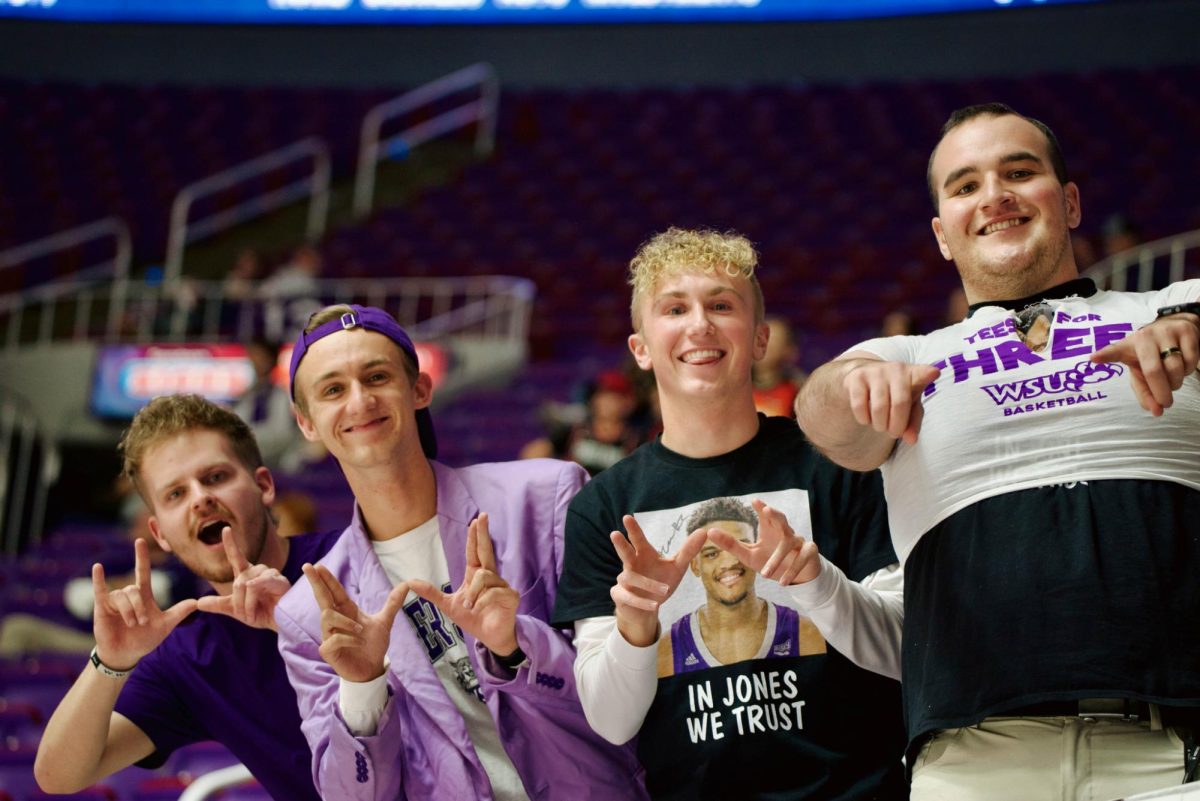
Weber State University held its first-ever Fix-It Clinic on Sept. 27, from noon to 3 p.m. in the atrium of the Shepherd Union Building. Students who needed to get any sort of item fixed to help them save time and money could stop by and get some help.
The Fix-It Clinic was started by Morgan Bowerman, the new president of the Utah Recycling Alliance. A year-and-a-half ago, she read about a Fix-It Clinic happening in Denmark and knew she wanted to start one in Utah.
“We made it a big goal to bring a Fix-It Clinic to Utah,” Bowerman said. “Our new motto is to help someone else put on the clinic for themselves.”
WSU’s Energy and Sustainability Office felt like a Fix-It Clinic was right up their alley, and they came to work with Bowerman on holding a day at WSU.
“They were so excited about the idea of it, so we decided to come together and bring it to the campus,” Bowerman said.
The event was completely free, and participants could bring any broken item. Bowerman said they try to have a team of coaches fix everything at different stations.
“We have a carpenter, a sewer, tech guy and people who can fix just about anything,” Bowerman said.
Of course, fixing broken items can be difficult. Bowerman said that their team generally has around a 65 percent fix rate, but that if the team can’t handle it, they can at least point you in the right direction to get other help.

The Fix-It Clinic helps demonstrate that saving broken items and fixing them instead of going out and buying new ones saves money and the environment. Drew Hodge, a water conservationist for the Energy and Sustainability Office, was coaching for woodworking items that were broken. After woodworking for 12-13 years, he applied his skills to help students fix their broken drawers.
“It saves them money and these items from hitting the landfill,” Hodge said. “I would like to take something looked at as garbage and turn it into something valuable.”
He said he plans to volunteer any time he hears about it because it is important that we fix what’s broken.
While getting his earphone jack fixed for his phone, Cliff Bledsoe spoke on why it is important to save our clothes.
“I have been doing industrial sewing for over 20 years,” Bledsoe said. “Over the years, I have saved my shirts and pants. It is important to save these because we are running out of room to throw things away. I think this should be done once a month at least.”
Bledsoe said he learned about reducing, reusing and recycling from Weber State Alumni Keith Tisher, and he emphasized the importance of learning about reusing and fixing things now instead of later.
Chief Technology Officer for Genius Monkey Dustin Caldwell helped fix gadgets and small electronics. Caldwell liked how, while students got their stuff fixed for free, others could hang around and learn to do a thing or two for themselves.
“I think it’s great for anybody to get their stuff fixed, but it is also great for others to watch and learn how to repair these things,” Caldwell said.
Caldwell also emphasized the importance of learning how to fix these items, stating that it can help save money and save the environment by throwing away less broken items and spending less money trying to buy new ones.
“Fixing things is easy. You just have to try,” Caldwell said.
Even when there isn’t a Fix-It Clinic around, anyone can still learn fix broken items to help save time, money and the environment. WSU hopes to host the event next year to help more students fix up broken stuff.













